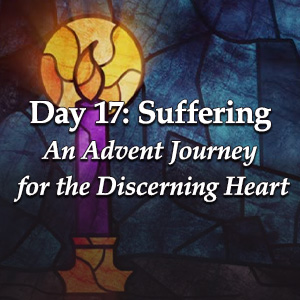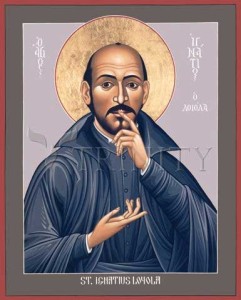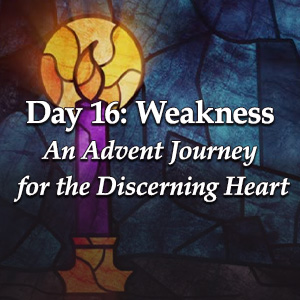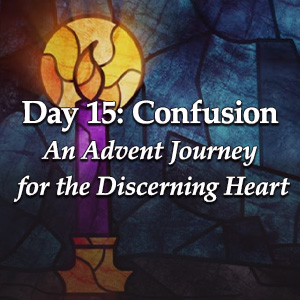Podcast: Play in new window | Download (Duration: 3:13 — 2.3MB) | Embed
Subscribe: Apple Podcasts | Spotify | Amazon Music | Android | Pandora | iHeartRadio | JioSaavn | Podchaser | Gaana | Podcast Index | Email | TuneIn | Deezer | Anghami | RSS | More

Day 16: Trusting Christ’s Quiet Growth in Us
It is only necessary to give ourselves to that life, all that we are, to pray without ceasing, not by a continual effort to concentrate our minds but by a growing awareness that Christ is being formed in our lives from what we are. We must trust Him for this, because it is not a time to see His face, we must possess Him secretly and in darkness, as the earth possesses the seed. We must not try to force Christ’s growth in us, but with a deep gratitude for the light burning secretly in our darkness, we must fold our concentrated love upon Him like earth, surrounding, holding, and nourishing the seed.
Commentary: Caryll Houselander invites us into a deeply contemplative attitude, one where we allow Christ to grow within us naturally, without forcing or striving. She reminds us that prayer is not always a focused effort of concentration but a quiet awareness that He is forming Himself within us, even in darkness. Like the earth holding a seed, we are called to embrace Christ’s presence within, trusting that He is quietly working in the hidden places of our lives. For Catholics, this reflects the contemplative tradition of silent prayer and trust in God’s unseen work within our souls.
Personal Reflection: In moments of prayer today, try to simply rest in God’s presence without striving. Imagine yourself as the earth surrounding and nourishing the growth of Christ within you. How can you deepen your trust in His quiet work, even when you don’t see immediate results?
Houselander quote from: Caryll Houselander, The Reed of God, Sheed & Ward, 1944
For more reflections visit:
Caryll Houselander – Discerning Hearts Catholic Podcasts
Image © Trinity Icons / Joseph M. Malham
Image used with permission
To purchase your own copy, visit Trinity Icons

 DAY 17 – Suffering
DAY 17 – Suffering

 Two Modes of Discernment – “What am I to do?” The Discernment of God’s Will in Everyday Decisions with Fr. Timothy Gallagher
Two Modes of Discernment – “What am I to do?” The Discernment of God’s Will in Everyday Decisions with Fr. Timothy Gallagher Discerning Hearts Reflection Questions:
Discerning Hearts Reflection Questions:

 DAY 16 – Weakness
DAY 16 – Weakness
 DAY 15 – Confusion
DAY 15 – Confusion